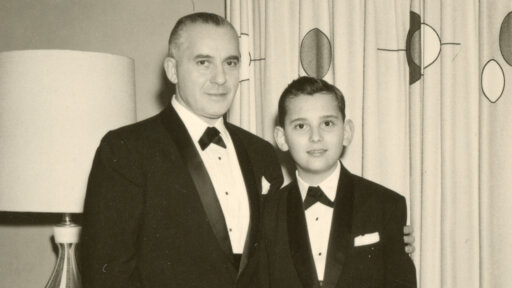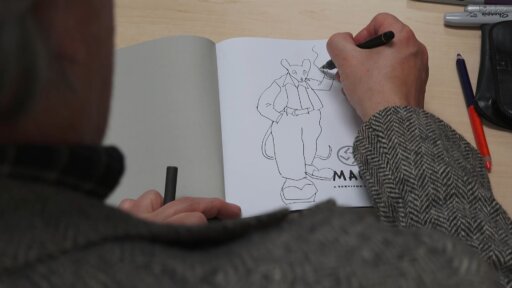In this segment of “Maus,” Art Spiegelman illustrated four Jewish victims hung by Nazis in Poland that Spiegelman’s parents knew. The page provides details about the victims as people, humanizing them and asking readers to slow down and acknowledge the horrors of the Holocaust.
Video Features
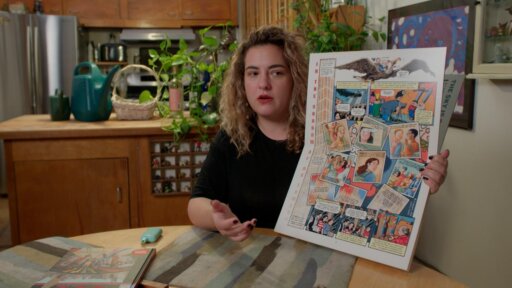
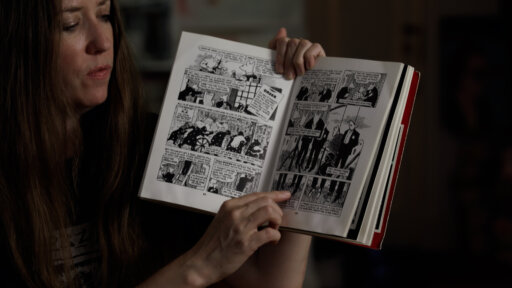
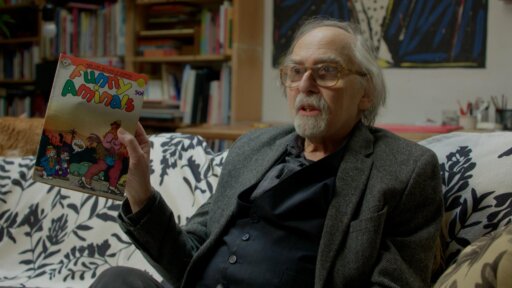
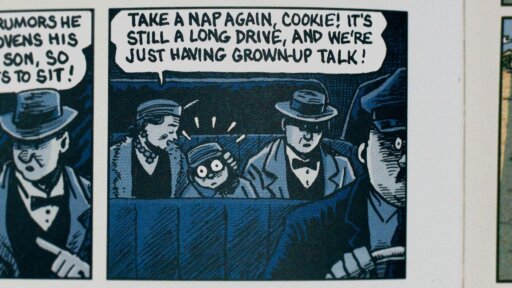
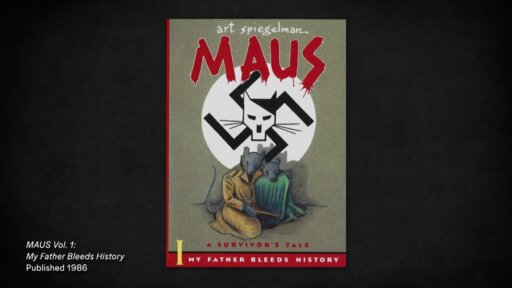
Written Features
(light music) - This to me is one of the most important pages in the book.
Vladek Spiegelman and Anja Spiegelman, Art's parents, were in the city of Sosnowiec, in Poland.
The Nazis have hung four Jews publicly as punishment for trading on the black market.
And it gives us a very large image that's also an unordered image.
This page is spectacular in a sense.
It's kind of unbounded.
It's asking readers to slow down and to encounter a shred of the horror of what Vladek must have felt.
Because he goes out to look at these people and these are people that he knew.
And then yet another thing this page does is that it gives us what Art has called literal footnotes.
We see these men hanging, and then we get a view in two panels below of just their feet, which would seem to be dehumanizing, but it's exactly the opposite because in the prose below their feet, we learned details about them as people.
- They hanged there one full week.
Cohn had a dry goods store.
He was known over all Sosnowiec.
Often he gave me cloth with no coupons.
I traded also with Pfefer, a fine young man, a Zionist.
He was just married, his wife ran screaming in the street.
- I think of this page as an example of Maus's explicit anti-fascism by particularizing, not only survivors, but particularizing victims, that the Nazis wanted to remain nameless.
You May Also Like







